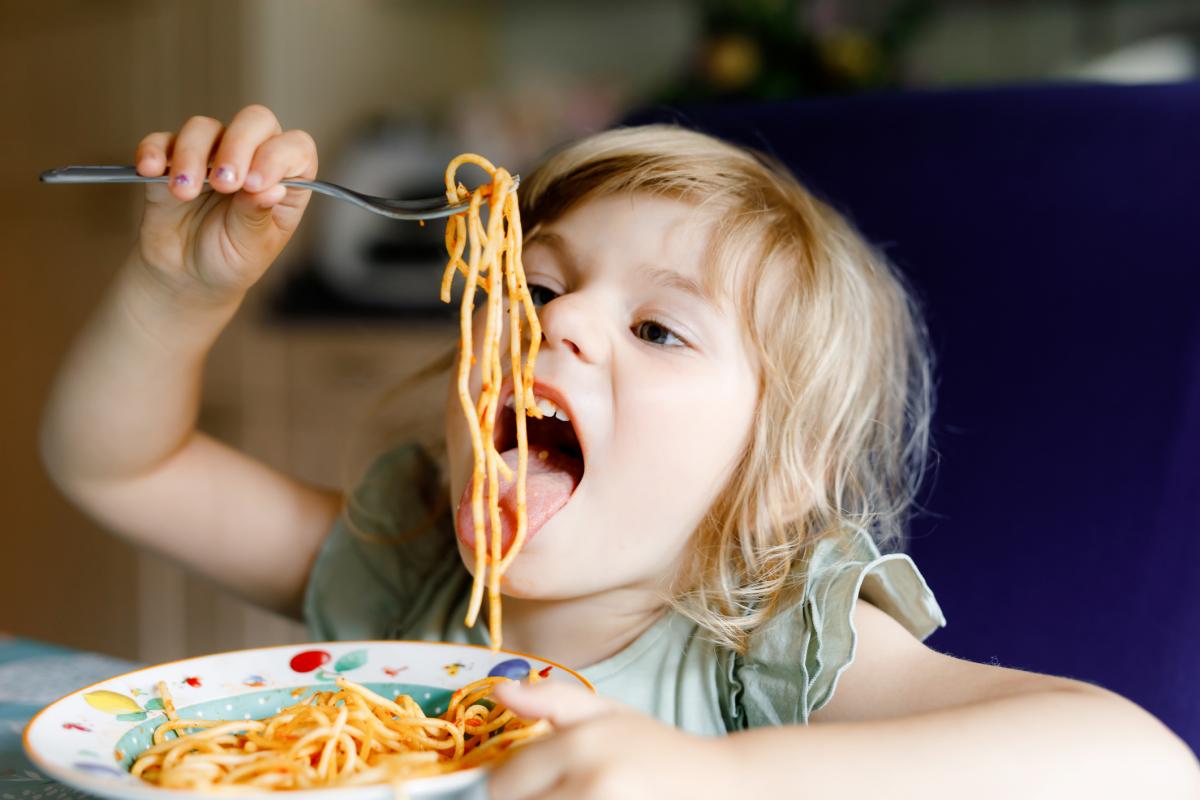In a world with unrealistic beauty standards and societal expectations surrounding body image, fostering a positive relationship with food and building body confidence in children is more important than ever. The language we use as parents and caregivers plays a crucial role in shaping the way our children think of themselves and food. Using food and body-neutral language plays an important role in nurturing a positive relationship with food and building lasting body confidence.
Food-neutral language

Using food-neutral language involves steering away from labelling foods as “good” and “bad” or “healthy” and “unhealthy” or labelling foods as “treats” and instead calling foods by their name—cookie, broccoli, donut. This helps children develop an inclusive approach to food, where all foods can be a part of a healthy eating pattern as a source of nourishment and pleasure, rather than guilt or judgment.
Not all food is created equal nutritionally speaking, but telling kids they should eat certain foods because they are good for them does not increase their desire to eat or like those foods. As a parent you get to decide what foods come into your home and how often they are served. Help kids learn what foods we eat most often and what foods we eat less often by the foods you offer at meals and snacks.
Intuitive eating
Eating intuitively involves listening to your body’s hunger cues and making food choices that make you feel good, rather than making food choices based on guilt, fear, or judgement. Mirroring this relaxed and flexible mentality in your eating habits will help your child develop a positive, balanced relationship with food.
Building body confidence

Words hold tremendous power, and the language we use when discussing bodies can significantly impact a child’s body confidence. Children who are body confident accept and feel good about how they look and what their bodies can do. Neutral language avoids making value judgments about body shapes and sizes, fostering an environment where every body is valued and appreciated. By being aware of how you talk about your body, weight, and food and steering clear of comparisons and stereotypes, parents can help children build a strong and positive sense of self, promoting body confidence from an early age.
Encouraging open communication
Adopting food and body neutral language creates a space for open conversation between parents and children. When discussions about food and bodies are free from judgment, children are more likely to share their thoughts and concerns. This openness allows parents to address any potential issues early on, providing the support and guidance necessary to navigate societal pressures and foster resiliency.
In the journey of raising confident and resilient individuals, the language we use as parents is powerful. Adopting food and body-neutral language creates a foundation for building a positive relationship with food and instilling body confidence in children. By promoting balance, acceptance, and open communication, you pave the way for your child to feel empowered to embrace their uniqueness and cultivate a healthy relationship with both their body and the food they enjoy.
More information and resources
- 10 Tips to help your child have a positive relationship with food and their body (PDF).
- Unlockfood.ca for information and resources for the Dietitians of Canada.
